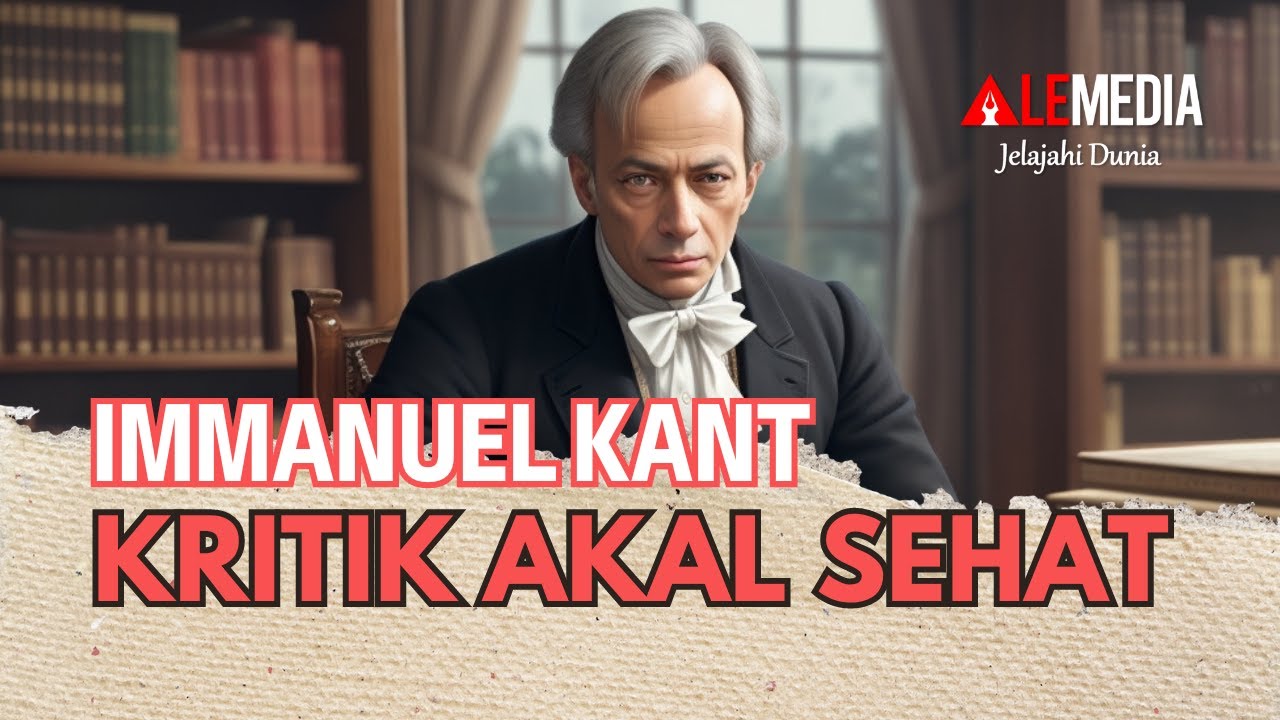Montesquieu - Brasil Escola
Summary
TLDRIn this video, Francisco Porfírio discusses the influential philosopher Charles de Montesquieu, focusing on his contributions to political theory during the French Enlightenment. Montesquieu's idea of the separation of powers, dividing government into executive, legislative, and judicial branches, is explored as a foundational concept for modern republican thought. The video also highlights Montesquieu's background, his revolutionary ideas against absolute monarchy, and his role in the Encyclopédie. Emphasizing the importance of liberty, equality, and the evolution of political systems, the video offers a comprehensive look at Montesquieu's lasting impact on contemporary political structures.
Takeaways
- 😀 Montesquieu was a French philosopher of the Enlightenment who proposed the theory of the separation of powers, which is still influential in modern republican and constitutional thought.
- 😀 Montesquieu's political theory advocates for the division of governmental powers into three branches: executive, legislative, and judicial, to prevent any single branch from becoming authoritarian.
- 😀 Montesquieu was born Charles Louis de Secondat and inherited the title of Baron de Montesquieu from his noble ancestors. Despite his aristocratic background, his ideas were revolutionary for his time.
- 😀 The French lived under an absolute monarchy during Montesquieu's time, while the English already had a constitutional monarchy with checks on the king’s power.
- 😀 Montesquieu was influenced by the ideas of other Enlightenment thinkers who promoted liberty, equality, and progress through reason and knowledge.
- 😀 Montesquieu contributed to the Encyclopédie, a key Enlightenment project aimed at spreading knowledge and encouraging intellectual and moral progress in society.
- 😀 Enlightenment thinkers believed that the spread of knowledge, particularly through public education, would lead to moral and intellectual progress for humanity.
- 😀 Montesquieu’s most famous work, *The Spirit of the Laws*, argues that political systems and laws should be adapted to the time and place in which they exist, rather than universally applied.
- 😀 Montesquieu's theory of the separation of powers was intended to prevent any one branch of government from overpowering the others and to ensure democratic governance.
- 😀 Montesquieu warned that if one branch of government became too powerful, it could lead to dictatorship, and thus maintaining a balance between the three branches is crucial for a healthy democracy.
Q & A
Who was Charles de Montesquieu?
-Charles de Montesquieu was a French philosopher during the Enlightenment, best known for his political theory, particularly his advocacy for the separation of powers in governance. He was born as Charles-Louis de Secondat and came from an aristocratic family.
What was Montesquieu's main political theory?
-Montesquieu's main political theory was the separation of powers, which suggested dividing political power into three branches: executive, legislative, and judicial. This structure aimed to prevent the abuse of power and ensure a balanced government.
What is the significance of Montesquieu's work 'The Spirit of the Laws'?
-'The Spirit of the Laws' is Montesquieu's most influential work, in which he discusses the nature of laws and their relationship to different forms of government. It presents the idea that political systems and laws should be adapted to the specific time, place, and circumstances of a society.
How did Montesquieu's views challenge the political structure of his time?
-Montesquieu challenged the absolute monarchy that existed in France by advocating for a constitutional monarchy or republican structure. He proposed that power should not be concentrated in one person but distributed to prevent tyranny and protect freedoms.
How did Montesquieu view the relationship between knowledge and society?
-Montesquieu, like other Enlightenment thinkers, believed that the spread of knowledge and the promotion of intellectual progress were key to moral and societal improvement. He supported the idea of universal education and the popularization of knowledge.
What role did Montesquieu play in the development of the Encyclopédie?
-Montesquieu contributed significantly to the Encyclopédie, a major project led by Denis Diderot and Jean le Rond d'Alembert. This work sought to compile and disseminate human knowledge, with the goal of fostering intellectual and moral progress.
What was the context of the Enlightenment during Montesquieu's time?
-The Enlightenment in Montesquieu's time was a cultural and intellectual movement that emphasized reason, individualism, and progress. It emerged as a response to the oppressive structures of the Old Regime, including absolute monarchies, and promoted the idea of political and social reforms.
What is the concept of 'separation of powers' and how does it work?
-The separation of powers is the idea that government power should be divided into three branches: the executive (which governs), the legislative (which creates laws), and the judiciary (which interprets laws). This structure ensures that no single branch can dominate the others, thus preventing tyranny.
What was Montesquieu's perspective on the mutability of laws?
-Montesquieu argued that there is no one-size-fits-all system of government or law. He believed that laws and political systems must evolve and be adapted according to the unique social, geographical, and historical contexts of each society.
What impact did Montesquieu have on modern republican thought?
-Montesquieu's theory of the separation of powers deeply influenced modern republicanism. His ideas were integral to the development of constitutional frameworks in many democratic nations, including the United States, which adopted similar principles in its Constitution.
Outlines

This section is available to paid users only. Please upgrade to access this part.
Upgrade NowMindmap

This section is available to paid users only. Please upgrade to access this part.
Upgrade NowKeywords

This section is available to paid users only. Please upgrade to access this part.
Upgrade NowHighlights

This section is available to paid users only. Please upgrade to access this part.
Upgrade NowTranscripts

This section is available to paid users only. Please upgrade to access this part.
Upgrade Now5.0 / 5 (0 votes)





